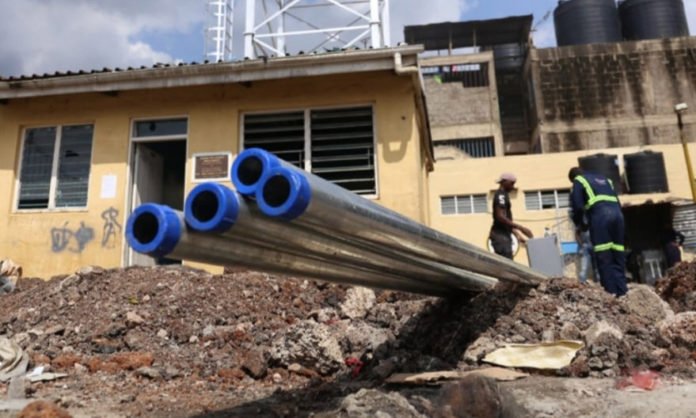Kenya’s capital, Nairobi, is set undertake an uplift of its sewerage system in a project meant to restore the sanity of rivers which have been in a terrible state due to effluent pollution.
The Nairobi City Regeneration Programme (NCRP) has embarked on improving sever lines within the capital city some of which were constructed about a century ago, when the city began taking shape.
Seven rivers flowing through the city of Nairobi are all in a terrible state due to pollution from human and industrial waste. Human waste disposal into the rivers has proven to be a challenge for quite a long time now. Residents have constructed latrines on drains through which the waste flows into the rivers.
The Kenyan government has joined efforts to help solve the problem of effluent by focusing resources on the rehabilitation and expansion of the existing sewerage system as well as the construction of new facilities.
Efforts to restore the Nairobi rivers has slowly been taking shape after a successful cleaning exercise on the Nairobi River.
READ: Kenyan Govt cleans up Athi River ahead of Thwake dam completion
Recently, the Nairobi Metropolitan Service (NMS) launched the expansion of sewer lines covering four hundred kilometers in Nairobi county to a budget of about US $15 million. The project will benefit approximately 2.8 million residents of Nairobi. It will cover different populated Nairobi constituencies.
Last year, the Government of Kenya launched the second phase of Nairobi Sewerage Improvement Program following the successful implementation of the first phase which increased sanitation coverage from 40 per cent in 2012 to 48 per cent by 2017 for improved public health and sustainable environment.
The second phase of Nairobi Sewerage Improvement Program is expected to enhance the provision of reliable, safe, and sustainable urban sanitation services in Nairobi City with a view of contributing to improved access and increased economic activities.
The program is aimed at expanding access to sewerage services, improve fecal sludge management, eliminating pollution of Nairobi Rivers and protecting them as alternative water sources through construction of secondary reticulation networks and last mile connections.





[…] Read:Sewerage system uplift to transform Kenya’s capital – Report […]